TIP NASIL KENDİ KENDİNİ İMHA EDİYOR
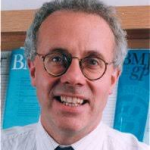
We need to change the course of medicine from a battle that can never be won to a humane enterprise
 Sometimes you read something that shakes you to your core. Often you are shaken because the piece expresses clearly and strongly something you’ve vaguely thought for yourself. It’s as when the clouds clear on the top of a mountain and all is laid out before you. I had that experience a few days ago when I read “How American medicine is destroying itself” by Daniel Callahan, the philosopher, and Sherwin B Nuland, the surgeon and author of the important book How We Die. These two men, both born in 1930, have, I suggest, thought more deeply about medicine than perhaps anybody else in recent times.
Sometimes you read something that shakes you to your core. Often you are shaken because the piece expresses clearly and strongly something you’ve vaguely thought for yourself. It’s as when the clouds clear on the top of a mountain and all is laid out before you. I had that experience a few days ago when I read “How American medicine is destroying itself” by Daniel Callahan, the philosopher, and Sherwin B Nuland, the surgeon and author of the important book How We Die. These two men, both born in 1930, have, I suggest, thought more deeply about medicine than perhaps anybody else in recent times.
I have found that since I read it, the article has come into my mind during every conversation I have had about healthcare: all of those conversations were concerned in some way with improving healthcare, but the article led me to think that they were all trivial compared with the way that medicine is destroying itself. Thinking about the extraordinary impact that climate change will have has the same effect and does, of course, trump the destruction of medicine. We carry on with the trivial, however, for what else can we do?
Before I summarise the article by Callahan and Nuland, I want to warn against the immediate dismissal of the article on the grounds that it’s about “American medicine” and so not relevant to other countries, including Britain. American medicine may be further ahead than any other with destroying itself, but they are writing about what might best be called “Western medicine,” which sadly is being snapped up by the middle classes even in low and middle income countries.
Callahan and Nuland begin with a quote from the landmark book Mirage of Heath published in 1959 by René Dubos: “complete and lasting freedom from disease is but a dream remembered from imaginings of a Garden of Eden.” Unfortunately, the dream is alive and well, and since the Second World War “the medical profession has been waging an unrelenting war against disease.” Indeed, the Chan Zuckerberg Initiative, funded with the profits from Facebook, has made explicit that it aims to end all disease. Behind medicine’s aims lie three assumptions: “that medical advances are essentially unlimited; that none of the major lethal diseases is in theory incurable; and that progress is economically affordable if well managed.” Callahan and Nuland question all of these assumptions.
After the successful eradication of smallpox “it was commonly assumed that infectious disease had all but been conquered.” But since then we’ve had HIV and other epidemics of emergent infections—with more guaranteed. Plus antibiotic resistance is moving fast. “Based on what we now know of viral disease and microbial genetics, it is reasonable to assume that infectious disease will never be eliminated.”
They continue: “If the hope for eradication of infectious disease was misplaced, the hopes surrounding cures for chronic diseases are no less intoxicated.” Nixon’s “war on cancer” was a flop, although slow progress has been made, and “no one talks seriously of a near-term cure” for Alzheimer’s Disease.
One of the most attractive of medical fantasies was the idea of “compression of morbidity” advanced by James Fries in 1980—that after a long healthy life we would fall apart and die rapidly. The result would be little suffering and lower costs. Unfortunately, Fries’s idea remains a fantasy. Callahan and Nuland quote a study from Eileen Crimmins and Hiram Beltrán-Sánchez, which found that “the idea has no empirical support.” “Health,” Crimmins and Beltrán-Sánchez concluded, “may not be improving with each generation” and “compression of morbidity may be as illusory as immortality. We do not appear to be moving to a world where we die without experiencing disease, functioning loss, and disability.”
Yet since Callahan and Nuland wrote their article the fantasy—far from fading—has been supplemented by an increasing number of scientists believing immortality to be achievable, while at the same life expectancy in the United States and some parts of Britain has begun to fall. This makes me think of Aguirre, the Wrath of God, the film of Werner Herzog, where the fantasies of the conquistador Lope de Aguirre of the unlimited wealth of El Dorado grow ever grander while his circumstances, adrift on a raft in the Amazon beset by disease and Indian attacks, grow ever worse.
Callahan and Nuland point out that “the ‘breakthroughs’ that have been predicted for such scientific sure things as stem cell technology and medical genetics—…have yet to be realized.” And seven years later they still haven’t, although the rhetoric continues unabated. “We have arrived at a moment, in short, where we are making little headway in defeating various kinds of diseases. Instead, our main achievements today consist of devising ways to marginally extend the lives of the very sick.”
Advances have, of course, been made, and we should all be grateful for advances that have led to big reductions in morbidity. I have a 60% cataract in my left eye, and I confidently expect that, far from going blind, I will be able to see better than ever with my myopic eye once I have the cataract removed and a lens implanted.
“Advances, however, should,” warn Callahan and Nuland, “be balanced against another factor: the insupportable, unsustainable economic cost of this sort of success. Twenty years from now, the maturation of the baby boom generation will be at flood tide. We will have gone from 40 million Americans over the age of 65 in 2009 to 70 million in 2030.” The same is true across the world—with differences in timing. The diseases of the elderly will not be cured—and even if they are they will be replaced by others, perhaps more terrible. (Is it progress, I ask, to cure cancer so that people can die slowly of Alzheimer’s?) “The best we will be able to do in many cases,” conclude Callahan and Nuland, “especially those of the elderly and frail, is extend people’s lives for a relatively short period of time—at considerable expense and often while causing serious suffering to the person in question.”
A 2006 study, quoted by Callahan and Nuland, found that because of increased life expectancy the incremental cost of an additional year of life beginning at age 65 rose from $46 800 in the 1970s to $145 000 in the 1990s. “Among the elderly,” argue Callahan and Nuland (both over 80 when the article was published), “the struggle against disease has begun to look like the trench warfare of World War I: little real progress in taking enemy territory but enormous economic and human cost in trying to do so. In the war against disease, we have unwittingly created a kind of medicine that is barely affordable now and forbiddingly unaffordable in the long run. Ours is now a medicine that may doom most of us to an old age that will end badly: with our declining bodies falling apart as they always have but devilishly—and expensively—stretching out the suffering and decay.”
The answer, suggest Callahan and Nuland, is “a system that is less ambitious but also more humane—that better handles the inevitable downward spiral of old age and helps us through a somewhat more limited life span as workers, citizens, and parents?” This is easy to write but desperately hard to achieve because “it will require—to use a religious term in a secular way—something like a conversion experience on the part of physicians, researchers, industry, and our nation as a whole.” Can you imagine the procession of doctors and researchers who come on the radio talking of breakthroughs, advances, and new life saving treatments suddenly talking of the need to reign in expectations and accept the inevitable?
Callahan and Nuland then turn their attention to medical research: “We must now comparably scale down our ambitions for medicine, setting new priorities in light of the obstacles we have encountered.” Stop “promissory notes” of saving millions of lives and place “a heavier emphasis on caring for the sick, not curing them . . . The traditional open-ended model of medical research, with the war against death as the highest priority, should give way to a new goal: aiming to bring everyone’s life expectancy up to an average age of 80 years (already being approached), reducing early death, and shifting the emphasis in the direction of improving the quality of life of those in every age group.” There is, I reflect, something horrifying about the empty promise of extending life when life expectancy is actually declining.
Making this change would mean upending the medical hierarchy, putting public health, primary care, and community care at the top and downgrading (or maybe I should write revering less) specialists. “Yet,” Callahan and Nuland continue, “the most difficult shift will have to take place not among doctors, but among the public as a whole. The institution of medicine is enormously popular with the public.” They advocate a “society-wide dialogue” in which “doctors will have to call repeated attention to the economic and social realities of the endless war on disease. They will have to remind the public that this war cannot be won—or can achieve small, incremental victories only—and if we are not careful, we can harm ourselves trying.”
I look forward to hearing more doctors in the media advancing such ideas, and talk of realistic medicine, prudent medicine, and slow medicine is a good start. I think too that every medical student should be asked to read Callahan and Nuland’s article and discuss it with their teachers, patients, friends, and family. I’m sending a copy to my medical student daughter now. She and her colleagues have a chance to change the course of medicine, make it a humane enterprise not a battle that can never be won.
Richard Smith was the editor of The BMJ until 2004.
Competing interest: None declared.
Kaynak: https://blogs.bmj.com/bmj/2018/02/19/richard-smith-how-medicine-is-destroying-itself/#disqus_thread
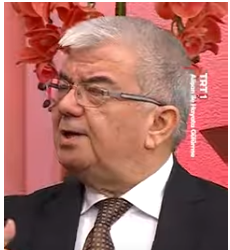







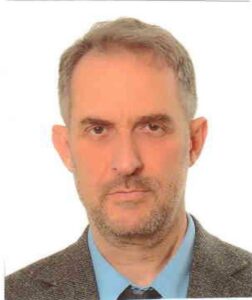
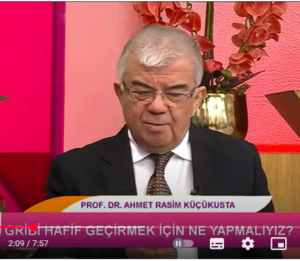
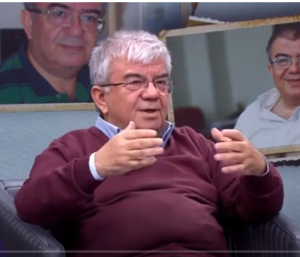
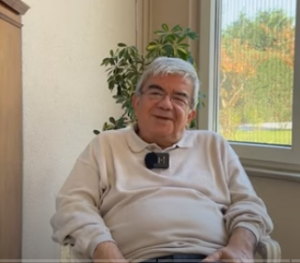
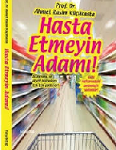


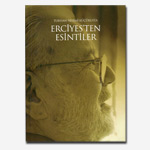

Analayamadık hocam